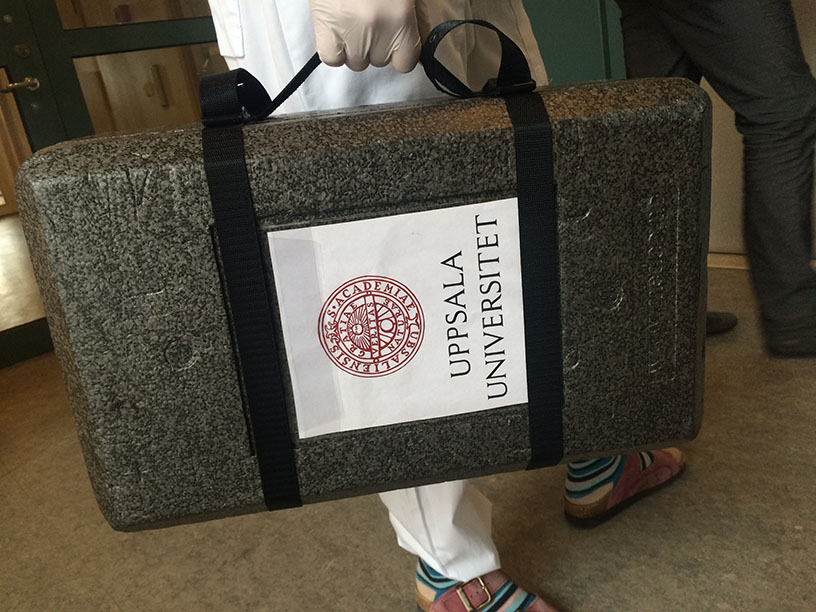Firstly we want to say a HUGE thankyou to everybody who has supported and donated to the iCancer crowdfunding campaign. What an incredible few months it has been!
Today (February 14th 2013) our crowdfunding campaign comes to an end and we’re really excited to announce that the combined donations through both indiegogo and direct donations to the University we have reached a total of $258, 508.
We simply cannot thank you enough.
We haven’t reached our goal yet – but even though the crowdfunding campaign has come to an end our campaign to raise the money hasn’t.
We have been working hard behind the scenes and we are now able to channel donations through two charity organizations. The American Friends of Uppsala University in the US and the Anglo-Swedish Society in the UK. This will give US and UK tax payers the possibility to receive tax deductions when donating to the campaign.
So what happens next? And what happens to the money raised so far? Prof Magnus Essand, virus creator from Uppsala University has answered all your questions below.
What will happen to the money raised so far?
Since iCancer was launched, so far we have raised an incredible $258, 508 via indiegogo and direct to the university.
We intend to use the money for a phase I clinical trial for patients with neuroendocrine tumours (NETs) using our neuroendocrine-specific virus.
We have drawn up a detailed budget and worked out we will need approximately £1,500,000 to be able to produce and test a clinical grade batch of the virus and perform a clinical trial for 20 NET patients.
The amount we have raised through crowd funding is fantastic and we are currently discussing with a potential donor to “fill in” what is missing to reach 1.5 million British Pounds.
We have also discussions with two other persons who might contribute larger amounts of money to the campaign. Please watch the iCancer website for more developments as soon as we can announce them…
The money raised so far is not enough for a clinical trial. What are you doing to further raise the funds?
We are channelling donations through two charity organizations (the American Friends of Uppsala University in the US and the Anglo-Swedish Society in the UK) in order to give US and UK tax payers the possibility to receive tax deductions when donating to the campaign.
We are planning a big event in London on the 5th March at the Swedish Embassy to further promote the campaign to donors.
We are also really pleased to announce that lots of people are still holding fundraising events to do all they can to raise money for iCancer.
What will happen if the funds are never raised?
We are confident that we can raise the funds. We have set ourselves the goal to raise the money needed during the entire year of 2013. The money will be kept in a secure account and will not be touched until we have obtained sufficient funding to go ahead with the clinical trial.
If for some reason we are not able to reach the goal and not get sufficient funding to conduct a phase I clinical trial, the money will still be spent on research for neuroendocrine tumors aiming at reaching benefits for NET patients. The main objective within this research program at Uppsala University is to develop new treatments for neuroendocrine cancer based on virotherapy and immunotherapy.
Finally…we want to say thank you
On behalf of all the iCancer team, and our team at Uppsala we want to say how inspired and touched we have been by the very generous donations that so many people have given.
From £5 to £5,000, every donation has made a difference. There’s been no budget, no rock concert, no celebrities like you usually see in fundraising – but this amazing amount has come in just by ordinary people giving money themselves and asking their friends.
This has not only raised a staggering amount so far -and has made it possible for us to go to other places for donations as a result.
We can’t say thank you enough.
We look forward to updating you on the work that we are doing to try to combat NETs – and to let you know about the trials.
Watch this space!

